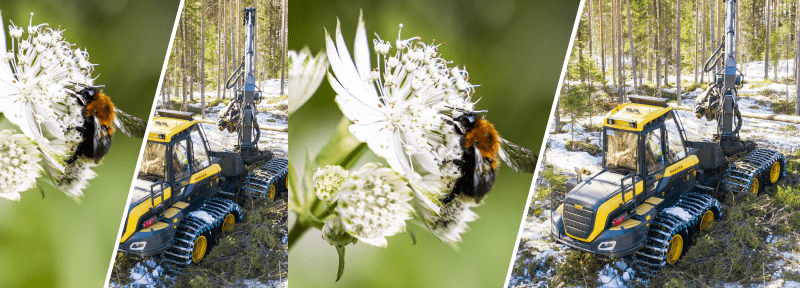
Carbon dioxide is traded, but the nature cap is a trickier problem.
Sitra, the Finnish Fund for the Celebration of Finland’s Independence, wants to encourage Finns to talk about biodiversity in the run-up to the parliamentary elections.
Today’s Nature Memo takes a look at the economy. Or more precisely, the link between the economy and nature.
*The value chains of the economy start with nature, and the economy does not exist without nature*, says the introduction to the book.
The report is full of terms borrowed from the language of economics, such as \”ecosystem services\” and \”natural capital\”. Sounds cryptic, but is ultimately simple.
*Ecosystem service* describes how nature provides humanity with clean water, pollination of food plants, raw materials and, for example, binding of carbon in the air.
Humanity, however, has not paid the full price for the services it has received – but has been emboldened by grief more than nature has been able to renew itself. That’s why *natural capital* has dwindled.
Natural value must have a price
According to Mikko Spolander, head of department at the Ministry of Finance, natural habitat endangers the economy, public finances and the well-being of future generations. The main problem is that nature values \u200b\u200bhave not been measured in euros.
– When there is no price for biodiversity, demand is limited only by the effort and costs associated with consuming nature. This leads to ecologically unsustainable economic choices, he describes.
Government professional Kaisa Hietala agrees.
– From the point of view of companies, the biggest missing factor for change is determining the value of nature using traditional economics. What is the value of a cube of clean water saved in the production process or a hectare of forest acting as a carbon sink?
Jouko Pölönen, CEO of the pension insurance company Ilmarinen, which manages billions of assets, says that the loss of nature threatens investment returns around the world. He, too, needs measures for biodiversity that would guide the operations of companies.
– Although a significant part of economic value creation is based on the services provided by nature, the benefits offered by nature and the disadvantages that come with it are not yet properly priced. This leads to pollution and waste of natural resources, for example.
Katainen’s other suggestions are more familiar:
It won’t take 30 years
In December, at the UN Nature Conference in Montreal, Canada, international goals to stop the loss of nature by 2030 were agreed upon. Tools and metrics are still uncertain. In any case, the implementation must be solved locally.
In many ways, the fight against nature loss is an even more challenging entity than, for example, climate change. In combating it, the global unit of measurement is the carbon dioxide equivalent ton, and the EU uses the emissions trading system as a tool.
However, Kaisa Hietala, who visited Ylen Ykkösaamu on Saturday, seemed to be an optimist. He believed that we will wake up to the loss of nature much faster than to the climate crisis.
According to Hietala, you can’t see climate change with your own eyes, but the loss of nature will soon be visible in backyards and berry forests.
– We spent 30 years debating whether climate change is real or not. I don’t think it will take another 30 years for nature cover to become a really important factor in business life as well.
